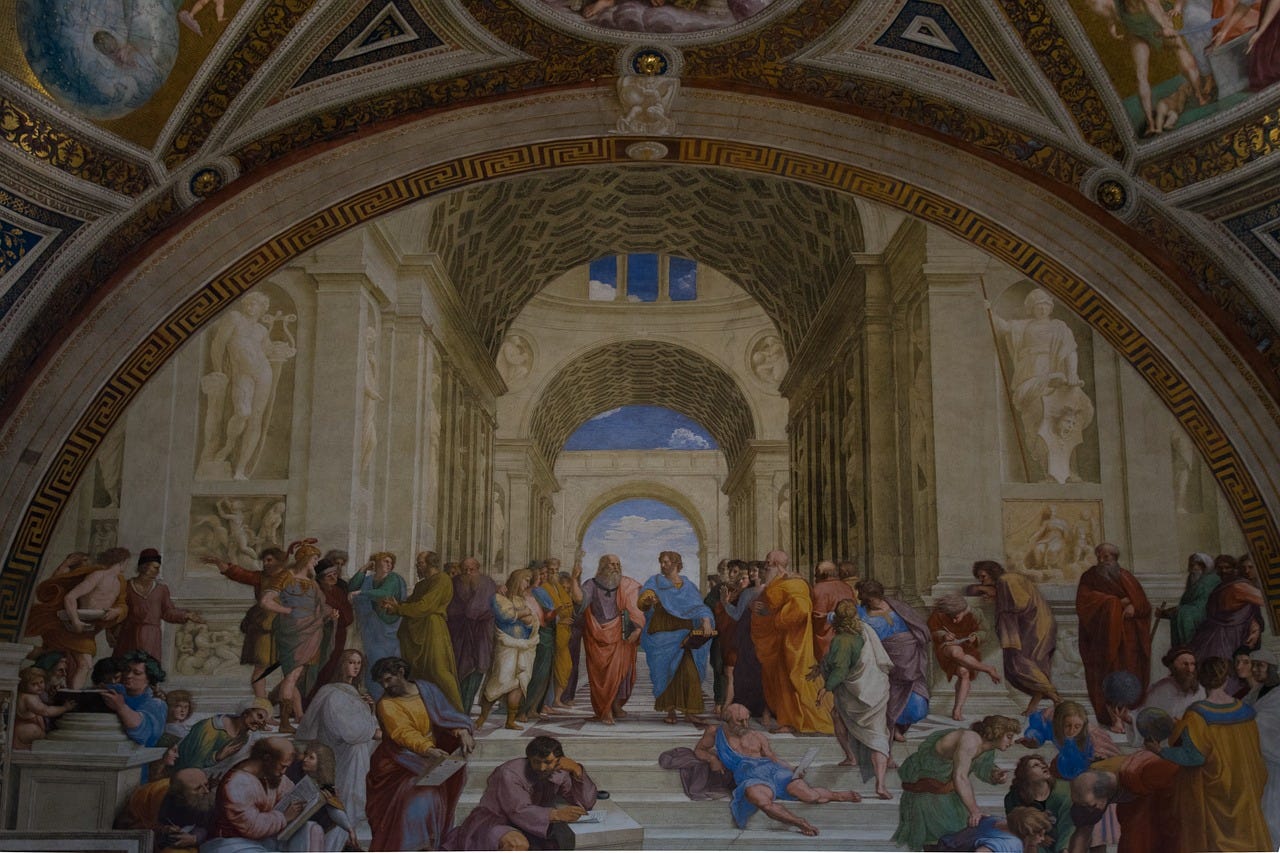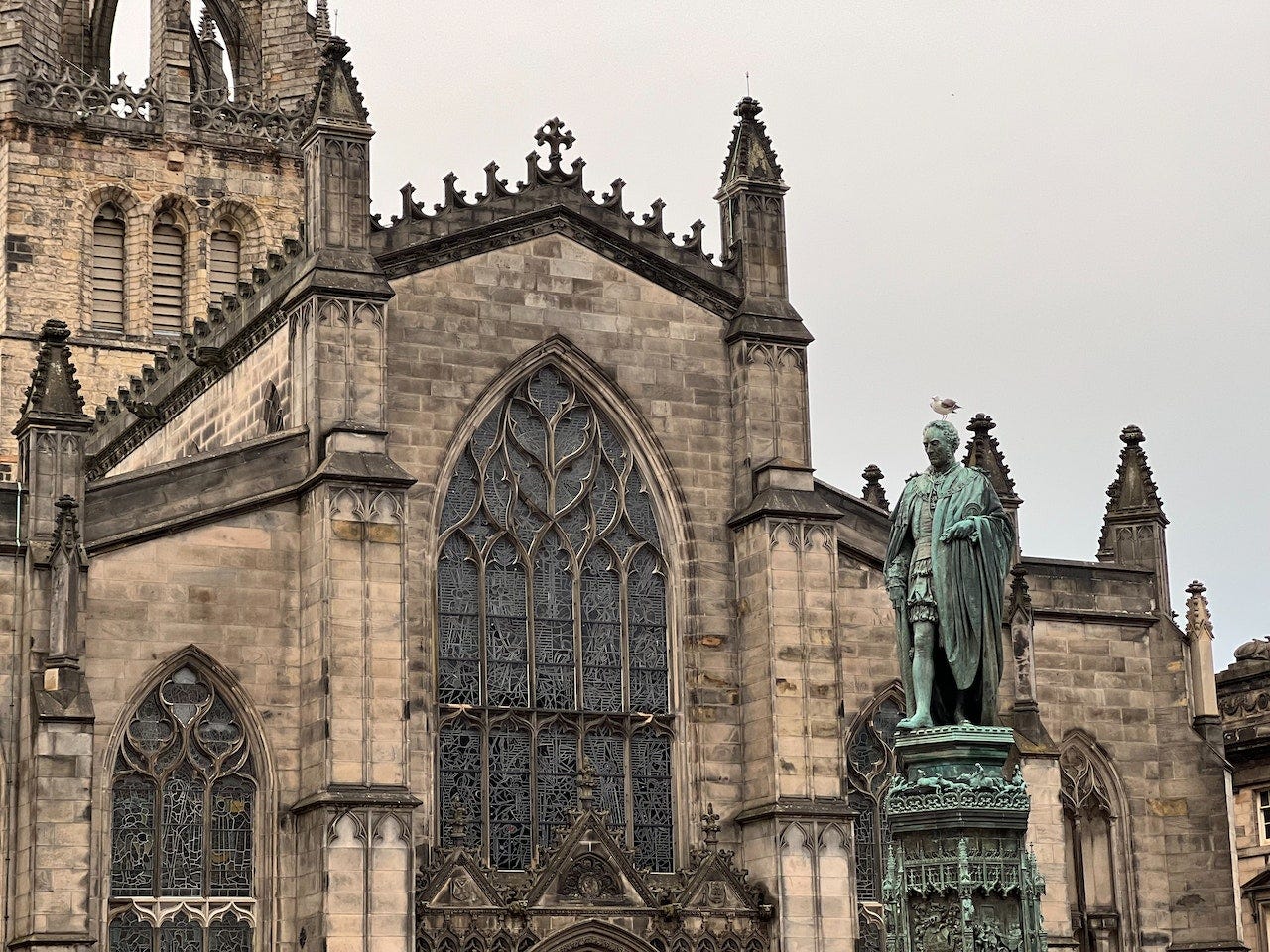E-Pluribus | June 7, 2023
The rise of the expertocracy; seeking independence from an acronym; and Adam Smith and Christianity find common ground.
A round-up of the latest and best writing and musings on the rise of illiberalism in the public discourse:
Mary Townsend: Do Democrats Dream of Philosopher-Kings?
Who should rule? is a question for the ages and not likely to be settled as long as humans are on earth, but clearly democracy has spread dramatically in recent decades. That alone, however, does not answer the question as Mary Townsend writes at Wisdom of Crowds. Our tendency to look to philosopher-kings, or today, experts, to govern must be tempered with the realization everyone is flawed.
Socrates’ plan for philosopher-kings takes us past this comforting neutrality. Rulers, Socrates thinks, should not only know about boats if the local economy happens to depend upon it. They should know about much more fundamental questions, namely, what justice itself is. This is a seemingly abstract question, but it becomes practical very quickly. Is private property just, for example? It’s not enough to know how we might win a war. We have to know what war is and what it’s for, and whether it is compatible with justice—or not. If the rulers lack this final knowledge of justice, Socrates argues, there will be no end to the misery of the human race.
Socrates’ kings are fixated on ancient geometry rather than statistics, and metaphysical insight rather than sociology. But they rule because they have the knowledge that will bring about more justice. Socrates describes in its fullest form the kind of rule we argue for every day.
It’s easier to be suspicious of a philosopher-king than a meritocrat. But the suspicion that Socrates’s thought-experiment brings out is its most valuable feature. No human being looks qualified, actually, to be a philosopher-king. What human being, with all their limitations, could know justice itself? But if that’s true, we are going to need to be suspicious of our wonks and technocrats too.
For instance, does our need for knowledgable political leaders or advisors justify a meritocracy of leadership over and above the democratic process and its ethos? Do the benefits of meritocracy justify rule by tyrannical meritocrats? Deferring to the knowledgeable expert is one of our society’s deepest temptations, and we are lulled into accepting rule when we thought we were only getting advice.
In fact, our desire for the competent technocrat is the respectability-politics version of the desire for the philosopher-king, tyranny in business casual. The philosopher-king looks obviously unjust because his too-great authority sits right there in the name. But every time we cede intellectual authority to technocratic sleight-of-hand, we pay fealty again to our dressed-up version of the philosopher’s tyranny, while forgetting that any human knowledge will remain all too human.
Read the whole thing.
Sherman Alexie: The ‘I’ in BIPOC
The acronym BIPOC is one of the lesser known favorites of the progressive community: Black, Indigenous, People of Color. That uppercase I irritates Sherman Alexie as he reveals at Persuasion. Despite the implied group dynamics, Alexie says the conventional wisdom that indigenous individuals typically lean left is patently untrue.
As you may or may not know, I’ve committed a political sin by not capitalizing “indigenous.” That’s the preferred, even required, nomenclature currently used by many to describe that group of people more popularly known as Indians, or Native Americans if you’re afraid of offending the handful of Native Americans who are offended by being called Indians. I’m a rather leftist Indian, a so-called progressive with a few socialist impulses (though in this illiberal era, I’ve been daily moving more and more of my furniture into the Milan Kundera-ish House of Classical Liberalism) and I’m here to tell you that Indians don’t typically refer to one another as indigenous.
No, it’s a word that’s now monopolized and canonized by leftist Indian political activists and their leftist non-Indian allies. I understand that the “I” in BIPOC is meant to convey pride and solidarity. And I agree with that mission. That mission is essential. But I think that “indigenous,” as politically employed, has instead become a word that restricts the meaning of what it is to be an Indian. It has created a national and international illusion that the only proper way to be an Indian, or to be an Indian at all, is to be an Indian who is a leftist political activist.
So allow me to make a statement that is simultaneously bold and banal: The Indian world is not filled with leftist political activists.
I’d argue that leftist political activists are only a small percentage of the Native demographic. I would posit that the basic Native political identity is ethnocentric, mainstream Democrat, capitalist, socially moderate, remarkably magnanimous, and only intermittently passionate. In other words, the Native American world is very…American.
This political disconnect between the very public leftist Indians and the more circumspect Native American population is not unusual. Based on various polls, it seems clear that leftist BIPOC activists hold many positions that are not widely shared by their own communities. The epic and aforementioned protest against the North Dakota Access Pipeline might lead you to think that was the result of a universal set of indigenous environmental philosophies. But there are Indian tribes nationwide who have business relationships with oil corporations.
Read it all here.
Erik Matson and Jordan J. Ballor: Smithian Liberalism and Christianity
While plenty of legitimate issues separate religious and secular philosophies, Erik Matson and Jordan Ballor argue that Adam Smith’s conception of a liberal society shares a fair amount of common ground with the principles of Christianity with both recognizing the frailty of human nature as well as the need for cooperation and coexistence.
Many British Enlightenment figures steered clear of reductionist accounts of the human person, favoring anthropologies largely consistent with Christianity. This is not, of course, to claim that the British classical liberal philosophers were all Christians, though many were. It is rather to argue that their philosophies display a broad consonance with Christian perspectives.
Smith’s anthropology, for example, emphasizes the dignity and moral equality of persons—street porters, philosophers and statesmen alike. Each is a vicegerent of God on earth; no one can elevate himself ethically over the multitude of humankind. Smith affirmed ordinary life and our ordinary human efforts to honestly better our condition as meaningful, illustrating through social and economic theory how that work contributes to the good of society.
On the other hand, Smith was aware of our corruptibility and our tendency to privilege our own interests over the good of others. He keenly perceived the dangers of social faction and violent religious fanaticism and the self-deception that those forces involve. Writing with the St. Bartholomew’s Day Massacre, the revocation of the Edict of Nantes, the sack of Magdeburg and the English Civil War in the not-too-distant past, Smith was aware of the slippery slope toward persecution, violence and disorder. He worked to advance a political order of peace, toleration and restrained political discretion in which all could pursue their interest in their own way within the rule of law.
Smith and his intellectual allies joined a long tradition privileging mutual persuasion over violence as the basis of social order. Michael Novak highlights Thomas Aquinas in this tradition, and Wilhelm Röpke argues that it extends back to Rome, Athens and Jerusalem. The tradition, Burke argued, builds from a set of “prejudices” or prejudgments—a culture and set of shared moral sentiments. It rests upon a principled anthropology, a view of the human person as dignified but corruptible, desirous of the good but capable of evil, limited in knowledge but with great potential for peaceable cooperation.
Read it all.
Around Twitter
Via Christopher Rufo, author Ibram X. Kendi has, uh, rephrased one of his most controversial statements in a new edition of his book How to Be an Antiracist, “The only remedy to racist discrimination is antiracist discrimination," which is changed to “The only remedy to negative racist discrimination that produces inequity is positive antiracist discrimination.”
As time goes on, it is clear George Orwell’s imagination was simply too limited. Caroline Farrow, arrested in Surrey in the UK last October over “anti-trans” tweets now has a police-assigned “offender manager” to answer to:
And finally, I think we can all agree this story out of Connecticut has grisly implications for Constitutional rights:









